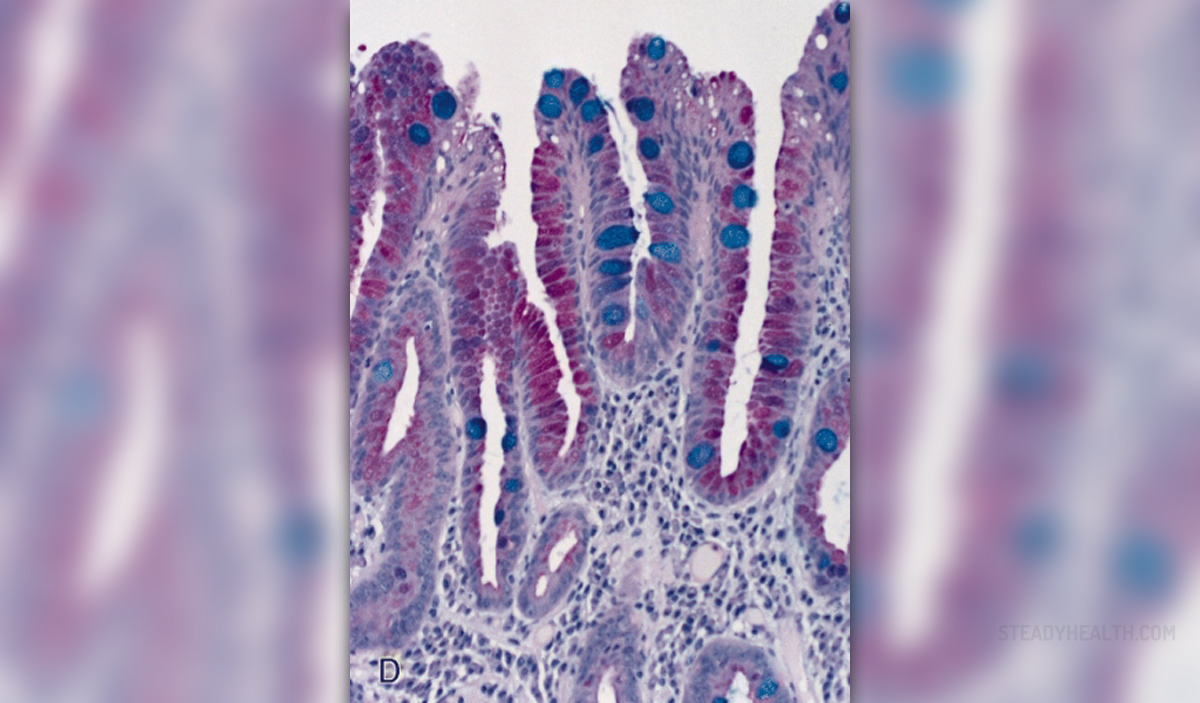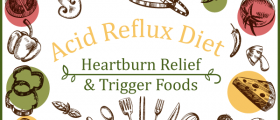
Definition
Reflux is the name for reverse flow of stomach acid back into the esophagus. Prolonged exposure of esophagus to gastric acid causes damage to tissues. Acids can enter the throat and damage the vocal cords and can be breathed into the lungs causing inflammation.Causes
Conditions that contribute to the returning of stomach acid are: a full stomach excessive body weight lying bending forward lifting heavy objects pregnancy uncontrolled obstructive pulmonary disease drugs that relax smooth muscles, such as theophylline and other oral bronchodilators, calcium channel blockers, and diazepam nicotine alcohol and coffee chocolate mint Helicobacter pylori and acid reflux disease are common conditions that are found together in many cases.Symptoms
GERD symptoms are an indicator of potential tissue injury due to prolonged exposure to acid. The amount of reflux required for the development of symptoms is different because every person is different. Damage to the esophagus occurs when acid reflux is too often, too acidic and when the esophagus isn’t able to quickly remove the acid.The most common symptoms of acid reflux are heartburn or pyrosis, regurgitation and difficult swallowing (dysphagia). Heartburn is usually described as burning pain in upper abdomen, below the sternum, which can spread to the neck, and usually occurs after meals. Regurgitation is free returning content from the stomach and esophagus into the throat without nausea, irritation to vomit or the stomach cramps. Acidic fluid mixed with small amounts of undigested food is usually regurgitated. Dysphagia is common after a long period of heartburn. If difficult swallowing deteriorates over time, this may be a sign of esophageal stricture occurrence. However, it is more often caused by inflammation of the esophagus and impaired food passing through esophagus. The most dangerous cause of dysphagia is esophageal cancer.
In addition to a number of gastrointestinal symptoms, asthma, inflammation of the larynx (laryngitis) and long-lasting cough are also attributed to GERD.
Other symptoms of GERD include: chest pain, stomach pain with returning the water content in the mouth, a constant sense of the pieces of food getting stuck in the throat, despite swallowing, painful swallowing, nausea, permanent hoarseness, chronic cough, asthma or a new performance of asthmatic attacks exclusively during the night, accelerated dental decay, repeated pneumonia, chronic sinusitis, awakening with a sense of suffocation. Pain associated with GERD can imitate angina pectoris and is typically described as squeezing or burning sensation beneath the sternum, with the spreading to the back, neck, jaw or arm. It takes a few minutes to couple of hours, and stops spontaneously or after taking antacids. It usually occurs after meals, awakens patients from sleep, and may be caused by emotional stress.

















Your thoughts on this
Loading...